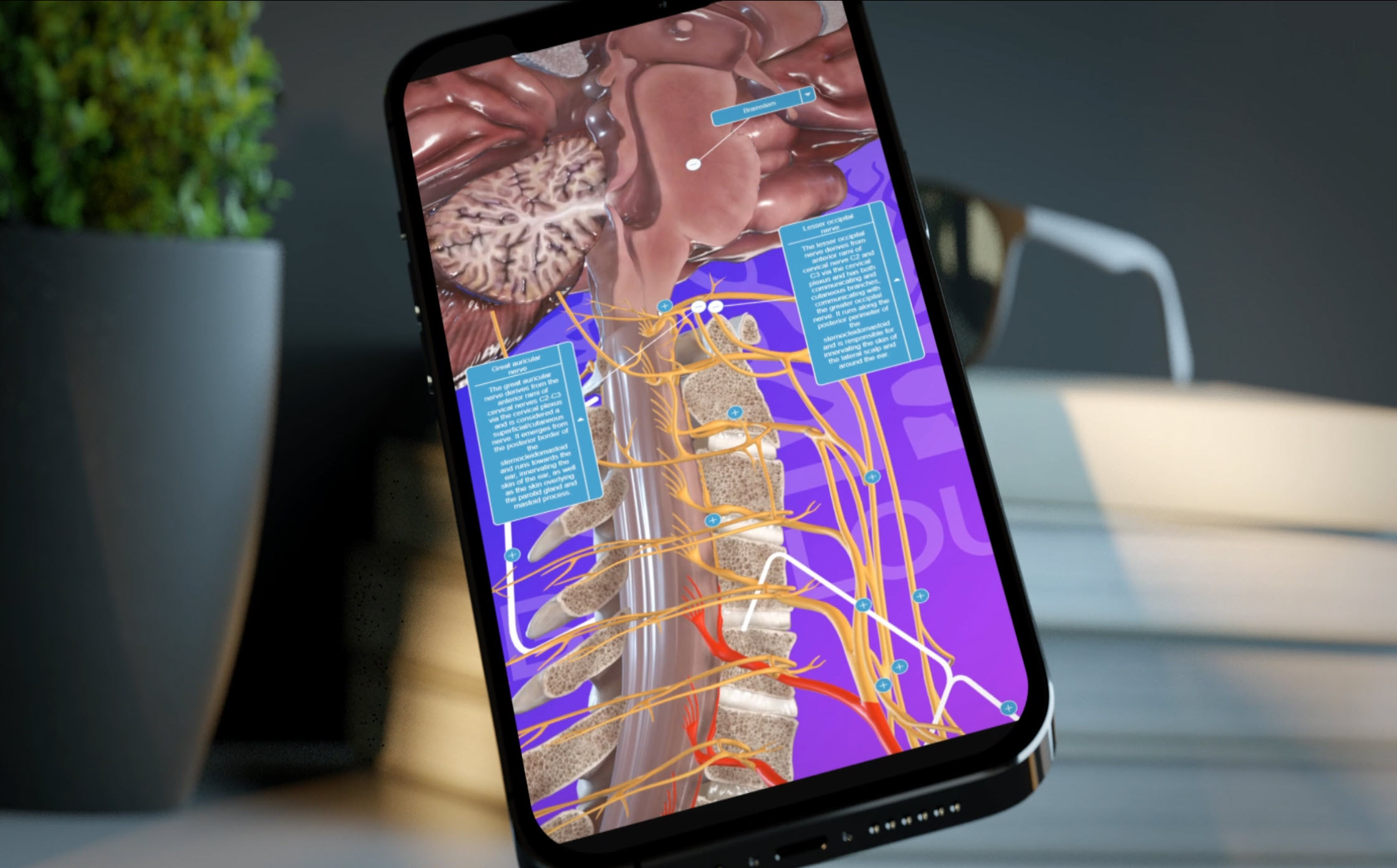Virtual Reality: Transforming the Healthcare Industry
Virtual Reality is changing the healthcare industry by transforming medical education, enhancing HCP training, providing advanced surgical training, enriching trade events, and offering innovative therapeutic treatments for patient disorders.

Medical Education
Virtual Reality (VR) is revolutionizing healthcare education by providing immersive and interactive learning experiences. Traditional methods of medical training often rely on textbooks, lectures, and limited practical experience. VR changes this paradigm by offering realistic simulations of the human body and medical procedures. Medical students can explore 3D anatomical models, practice surgical techniques, and engage in virtual dissections, enhancing their understanding and retention of complex concepts. This innovative approach to medical education ensures that future healthcare professionals are better prepared for real-world challenges.
HCP Training
Healthcare professionals (HCPs) require continuous training to stay updated with the latest advancements in medical science and technology. VR facilitates this by offering immersive and hands-on training experiences. HCPs can simulate patient interactions, practice diagnostic procedures, and explore new medical devices in a risk-free virtual environment. This not only improves their skills and confidence but also ensures that they are well-equipped to provide high-quality patient care. VR-based HCP training is particularly beneficial for complex procedures, where repeated practice in a controlled setting can significantly enhance proficiency.
Proprietary Surgical Training
Surgical training is one of the most critical areas where VR is making a substantial impact. Traditional surgical training involves observing procedures and performing supervised surgeries, which can be limited by availability and patient safety concerns. VR provides a solution by offering realistic surgical simulations that allow trainees to practice repeatedly without any risk to patients. Surgeons can perfect their techniques, learn new procedures, and experience rare or complex cases in a controlled and safe environment. This proprietary surgical training not only improves surgical outcomes but also accelerates the learning curve for new surgeons.
Trade Events
Trade events in the healthcare industry are leveraging VR to create more engaging and informative experiences. VR booths and demonstrations allow attendees to explore medical products, devices, and procedures in an immersive and interactive manner. This technology enables exhibitors to showcase their innovations more effectively, allowing potential clients and partners to experience their offerings firsthand. VR at trade events enhances engagement, facilitates better understanding of products, and fosters meaningful interactions between industry professionals.
Therapeutic Treatment for Patient Disorders
Beyond education and training, VR is also transforming therapeutic treatments for various patient disorders. VR therapy is being used to treat conditions such as chronic pain, anxiety, PTSD, and phobias. By immersing patients in calming or controlled virtual environments, VR can help reduce pain perception, manage anxiety levels, and facilitate exposure therapy for phobia treatment. Moreover, VR is being integrated into rehabilitation programs, offering patients engaging and motivating ways to perform physical therapy exercises. These applications of VR in therapeutic treatments enhance patient outcomes and provide new avenues for holistic care.
Virtual Reality is revolutionizing the healthcare industry by transforming medical education, enhancing HCP training, providing advanced surgical training, enriching trade events, and offering innovative therapeutic treatments for patient disorders. As VR technology continues to evolve, its impact on healthcare will only grow, leading to improved education, training, and patient care outcomes. Embracing VR in healthcare not only drives innovation but also sets the stage for a future where medical professionals are better equipped and patients receive more effective treatments.
Let’s Get Started
Interested in learning more about how Intervoke can bring your science to life?
Contact us or book a Discovery Call to get started.


